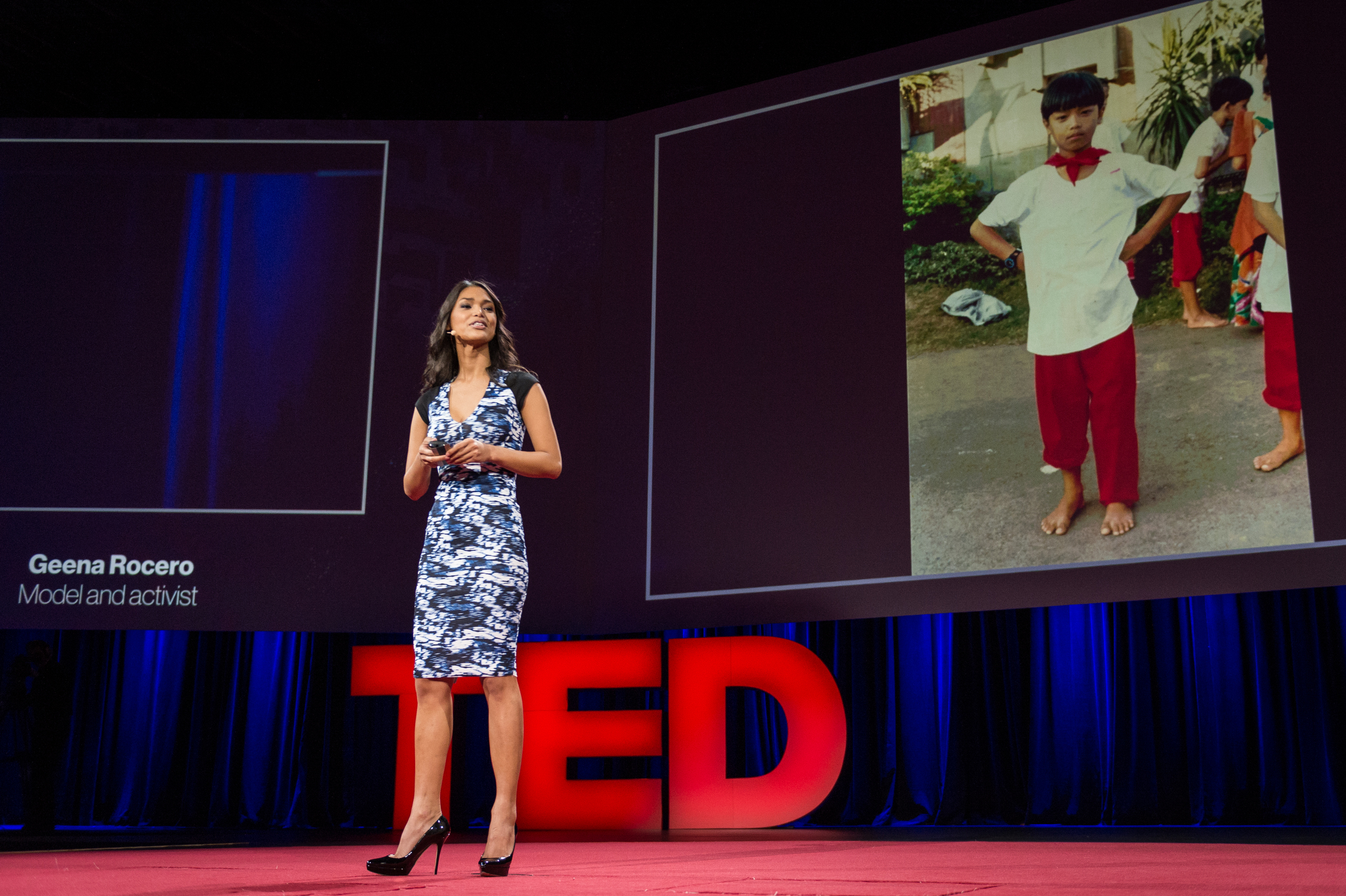“The world makes you something that you’re not — but you know inside what you are.” Model and activist Geena Rocero opens her powerful talk in the first session on Wednesday, March 19, at TED2014.
Rocero, poised in sky-high black patent heels, shows photos from throughout her modeling career: bold, bikini-ed, confident. Her career as a successful fashion model for the last nine years seemed to mean she had achieved her greatest dream: To the public, Rocero’s outer self finally matched her inner truth. All the while, she admits, she was keeping the truth of her past from neighbors, friends, colleagues, and until recently, even her agent: She was born assigned male. “All of us are put in boxes by our family, our religion, our society, our moment in history, even our own bodies,” says Rocero. But some people have the courage to defy those boxes — so she decided she would no longer hide within the status quo.
To start her story, Rocero shows a photo of herself as a kid growing up in the Philippines, a T-shirt draped around her head. Even as a little girl, she knew that her assigned sex of little boy did not match her real identity. Why are you wearing a T-shirt on your head? her mother would ask. “Mom, this is my hair! I’m a girl!” Rocero says, smiling at the memory.
In the Philippines, Rocero was supported by her family and friends, and she began participating in — and winning — countless trans women beauty pageants. So when her mother called to tell her that her American green card petition had come through, Rocero hesitated. She was a beauty queen in the Philippines, surrounded by supportive friends and having fun. But then came the crucial detail: Rocero’s mother told her that in the US she would be able to change her name and gender marker. It was all she needed to hear.
At the time in the US, sexual reassignment surgery was required before one could legally change one’s gender marker. So at 19, Rocero went to Thailand for surgery. And in 2001 she arrived in San Francisco with a new name — she added a second “e” to become Geena — and legal recognition as a woman. To others, says Rocero, a driver’s license is permission to drive or buy alcohol. “For me, that was my license to live, to feel dignified.”
Not everyone is so lucky — and that’s why Rocero feels it’s her responsibility to come out to the world and tell her story. She pauses and says: “Today, this very moment is my real coming out.” Standing tall, striking and misty-eyed, she spreads her arms on the TED stage: “I am here exposed … to help others live without shame and terror.”

Comments (11)
Pingback: Cristianos Gays » Emocionante salida del armario de la modelo Geena Rocero como mujer transexual
Pingback: Popular Model/Activist Reveals She Was Born Male | currentblogginginfo.com
Pingback: At TED, NSA responds to Edward Snowden | Times of News | Online breaking and Latest News From NIGERIA
Pingback: » Emergent themes at TED2014 (Post 1)
Pingback: Milsal McCaull » TED 2014 emergent themes #2: Making Space for the Other’s Experience
Pingback: Why TED Matters - TIME
Pingback: Why I must come out: Geena Rocero at TED2014 | TED Blog | Charissa's Grace Notes
Pingback: At TED, NSA responds to Edward Snowden | pacttodo
Pingback: Springboard Session 5: Wild ones, playthings and braaaiinnnnns | TEDActive Blog